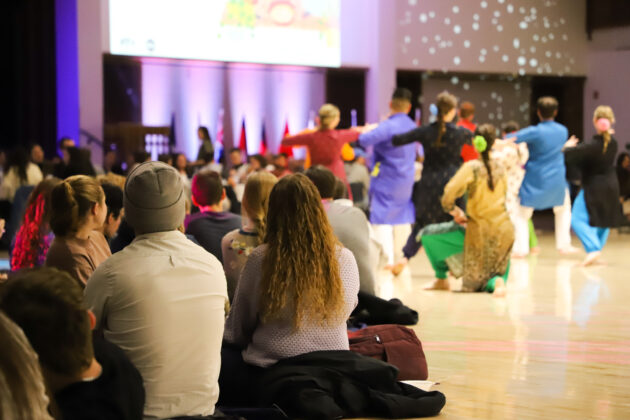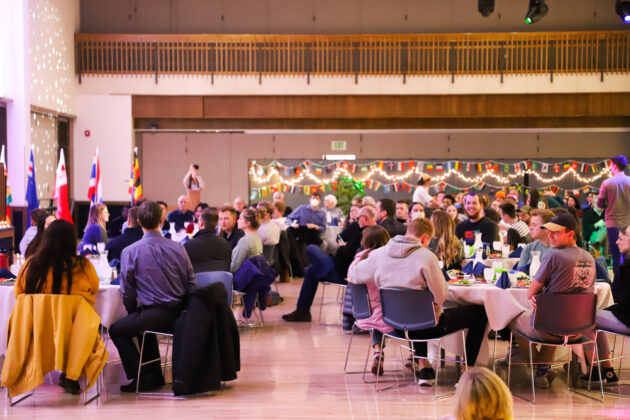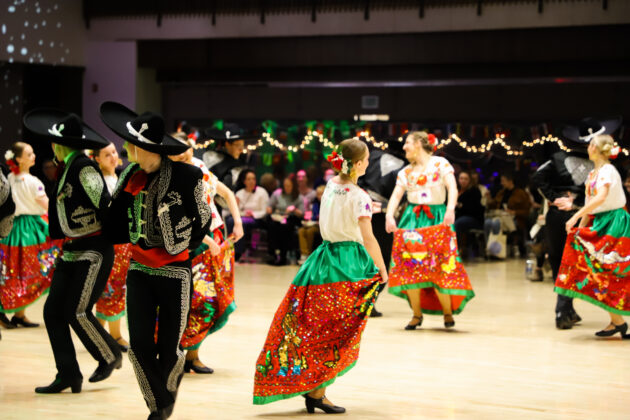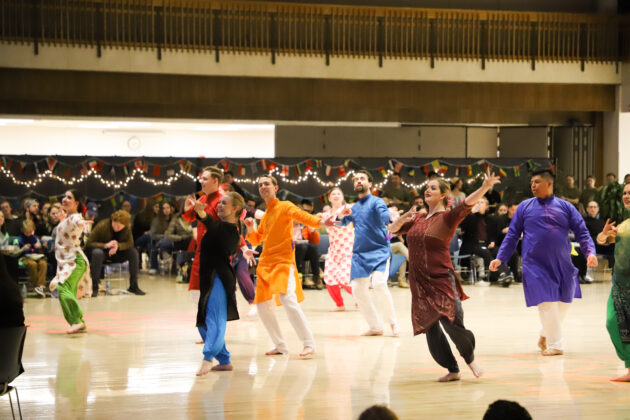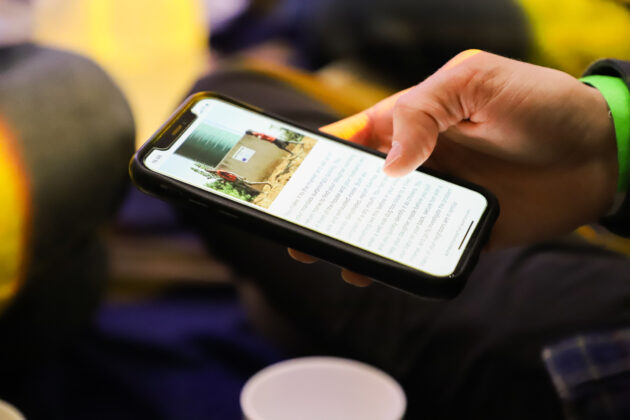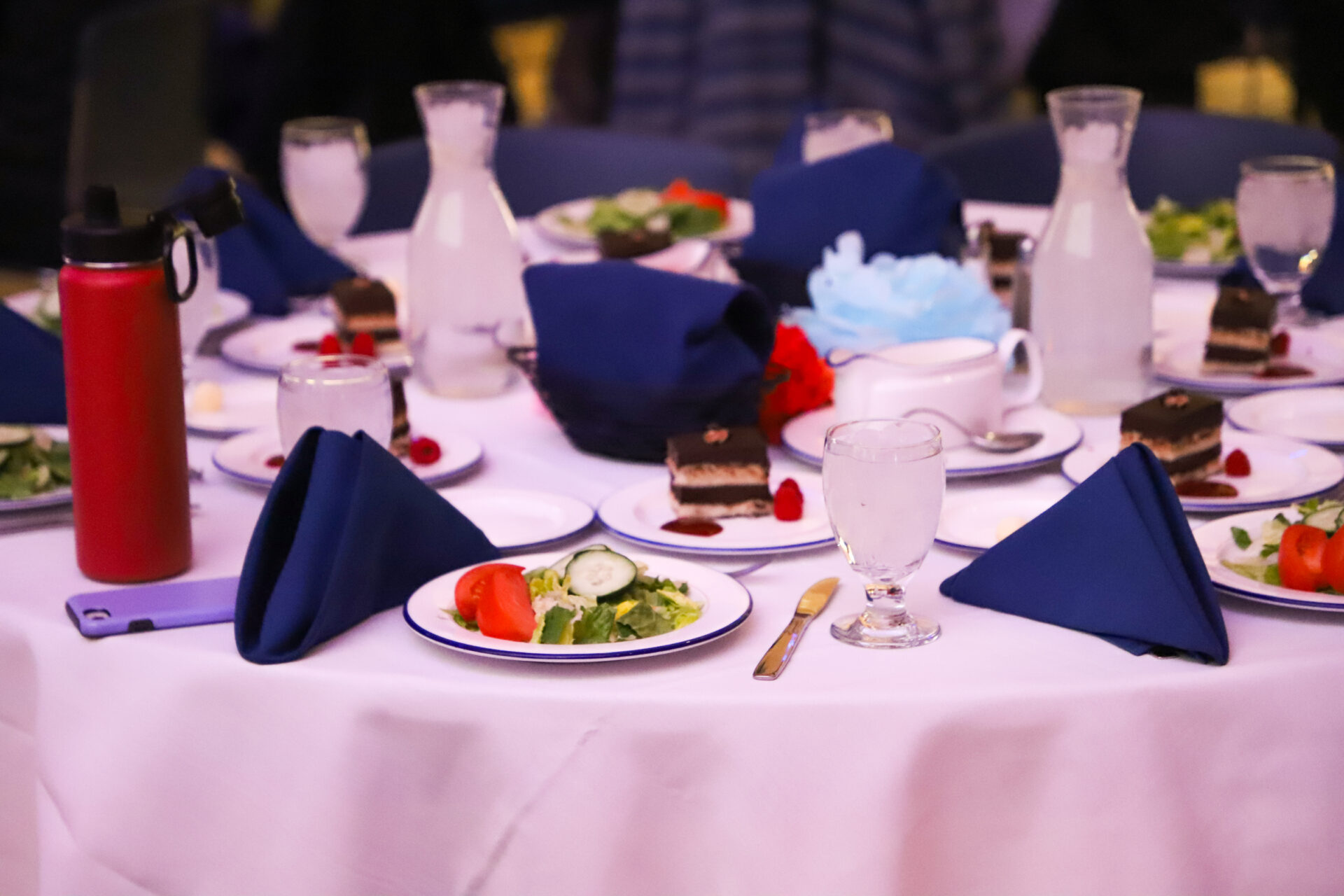
BYU’s Students for International Development put on the 31st annual Hunger Banquet, an event meant to portray global inequality, on Friday.
Guests were randomly selected to eat meals representative of global income levels in first-, second- and third-world countries: 75% of participants were selected to have a third-world country experience while 25% were given second- and first-world experiences.
Attendees were also asked to scan QR codes upon arrival linking them to stories based on the lives and experiences of individuals living in their respective countries.
Kellie Haddon, co-president of Students for International Development, said a lot of time and effort is required to plan the banquet each year.
“We started planning it in June or July of this last year,” Haddon said. “We have eight different committees. It’s a big project and lots of planning goes into it.”
The event featured six different performance groups whose acts highlighted different cultures and talents from around the globe.
“I think it’s a really cool event,” Haddon said. “We can celebrate different cultures around the world and come to know more of what they experience.”
At the end of the evening, Students for International Development announced ticket proceeds and donations from that evening would go to Coafrica, an organization dedicated to providing quality education to children in Africa.
“The organizers of this event did a really great job with the way that they divided up the economic classes. They’ve given people a real-world experience,” BYU political science major Gavin Hickman said.
Throughout the evening, guest speakers also shared their experiences with global inequality and the importance of building up communities and individuals.
“I think it’s really important for students to learn about different experiences,” geography major Harriet Huang said. “We live in a global world and it’s important for us to know how people live outside of just our community.”
More ways to get involved in Students for International Development can be found on their website.

